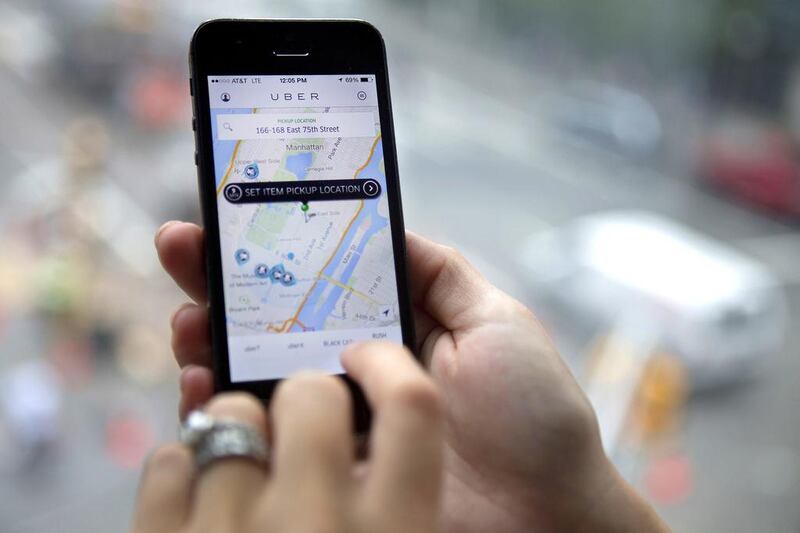As taxi drivers in several European cities strike and protest over Uber, the US-based company has enjoyed a seamless introduction in the Middle East and is eyeing expansion across the region.
“We have grown more than ten-fold since we launched last year,” said Jean-Pierre Mondalek, the general manager for the UAE at Uber. “The reason we have been able to expand so fast is because we are a tech company. We’re growing faster now than we were last year.”
Uber is a smartphone application that connects commuters with private drivers. It is celebrating its first year in the Middle East this week by launching its low-cost option, UberX, and its corporate account service Uber for Business.
Dubai became the 44th city to join the network a year ago. It has since expanded to Abu Dhabi, Beirut, Jeddah, Riyadh and Doha. There are more than 215 cities on Uber’s network globally and the company is hiring staff in the region with plans to launch in Cairo next.
“We were a team of three and now we are 20 serving the Middle East region,” said Mr Mondalek.
While cabbies in European cities from Madrid to Berlin have clogged traffic to protest against the effect that Uber has had on their income, and a court in Germany banned the service entirely (the injunction has since been overturned), regulators here have welcomed the app and have even launched their own version for Dubai.
In Dubai, the Roads and Transport Authority’s (RTA) regulations prevent Uber from undercutting local taxi companies by enforcing a 30 per cent surcharge on the minimum fare. That means the UberX low-cost service has a minimum fare of Dh13.
The cost of an UberX ride from Dubai Marina to the airport’s Terminal 1 is in the range of Dh70 to Dh89. UberBlack, its higher-end service in Audis and BMWs, would charge Dh87 to Dh110 for the same trip.
“It is a utopian market for Uber – that’s the reason we have grown so fast in the UAE. The smart city government initiative encourages innovative technology like ours,” Mr Mondalek said. “The RTA’s reaction to us was to launch their own smart app and that’s awesome. I applaud them for thinking ahead.”
The service has also proven popular with the Uber driver partners, who traditionally would wait at hotels and pick up holidaymakers.
“Now we get more jobs. It is easy and quick for us,” said Shafqat Hussain, a driver at Askari Limousine. “The price is less, but there are more jobs.”
Mr Mondalek declined to specify the number of Uber users or trips made daily in the region, but did say that it was in the thousands.
He said Uber was beginning to change the way residents commute, and its effects have trickled down to the Dubai taxi companies, which are using the RTA smart app.
“It is good for us because it is quicker. We reach the customer and pick them up quickly,” said Waqas Ahmad, a driver with National Taxi. “Before customers had to call the RTA, wait for the order and then go.”
Uber is looking to expand the use of its software outside of transportation and further into lifestyle sectors.
“Today we’re an on-demand transportation service, tomorrow logistics, and in the future on-demand lifestyle,” Mr Mondalek said.
thamid@thenational.ae
Follow The National's Business section on Twitter





